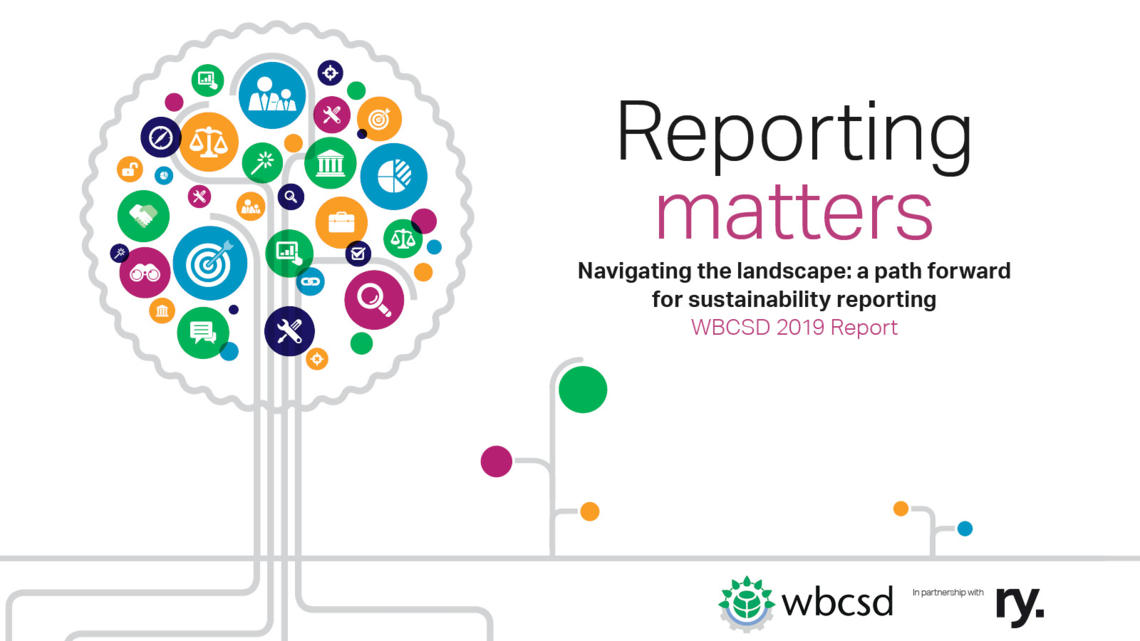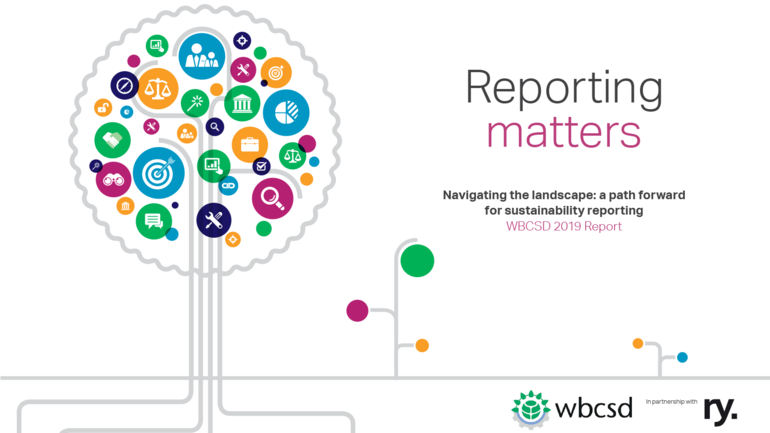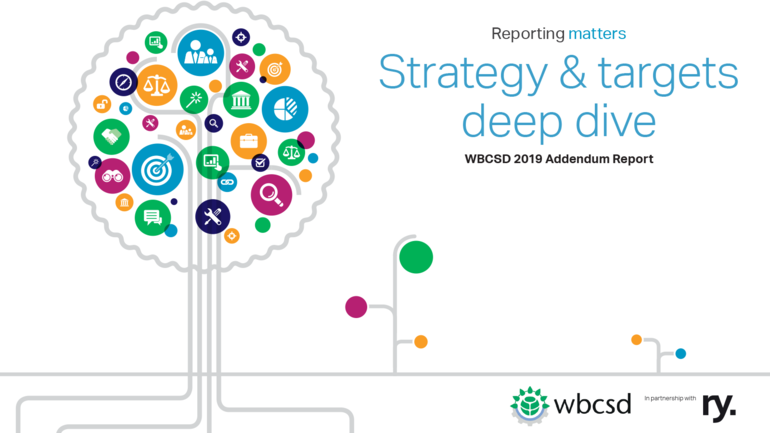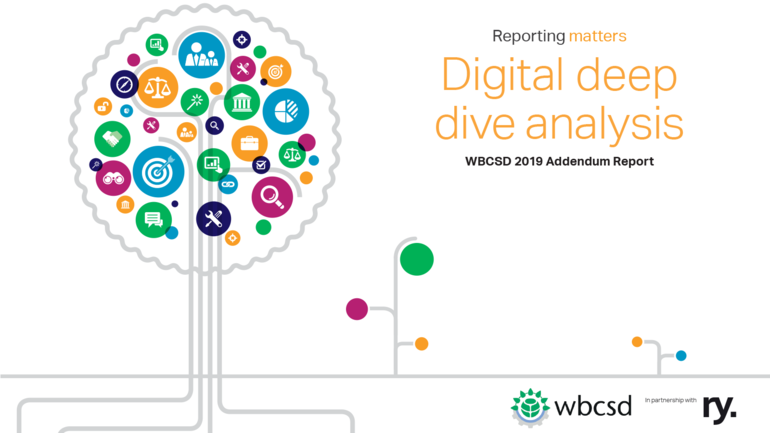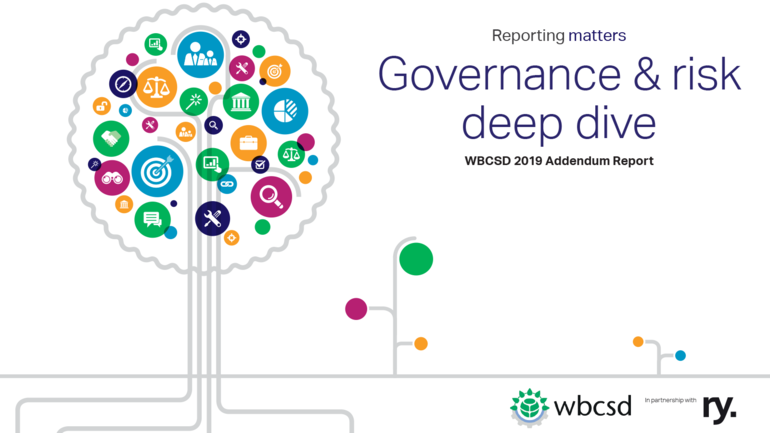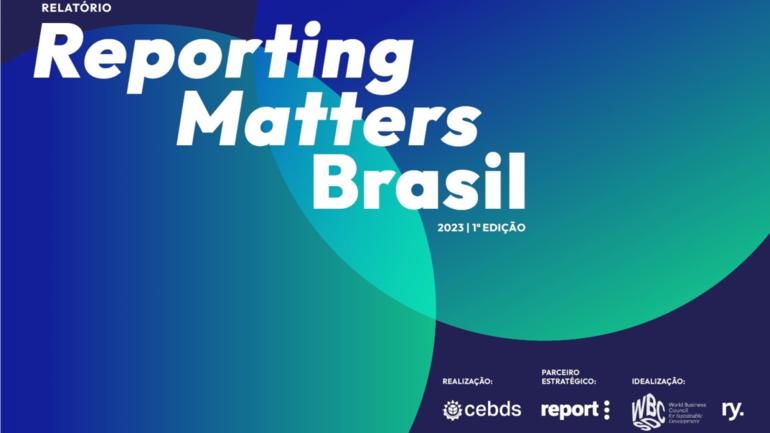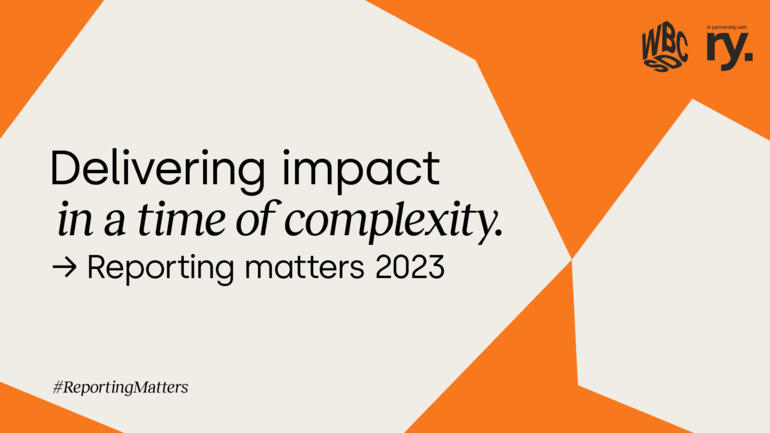Geneva/Lisbon/London 14 October 2019: Today, the World Business Council for Sustainable Development (WBCSD) calls on regulators and standard setters to simplify and align the corporate reporting landscape in the seventh edition of Reporting matters – WBCSD’s annual review of member companies’ sustainability and integrated reports in partnership with Radley Yeldar (RY).
Spanning 159 leading companies from 19 supersectors and 34 countries, this year’s research points to continued progress in corporate environmental, social and governance (ESG) reporting and disclosure as well as a continued movement towards digital reporting.
The current convergence of public pressure, government regulation and investor scrutiny has led to an explosion of information requests and reporting approaches to satisfy stakeholder needs. While this has made sustainability reporting an imperative for business, it has also created a significant burden for reporters.
This year, Reporting matters presents the evolution in reporting that WBCSD and its members want to see in response to the increasing complexity of the reporting landscape, alongside external perspectives from leading regulatory and voluntary voices.
Three addendum reports explore distinct aspects of reporting:
- The role of risk and governance in internal decision-making and external disclosure;
- How sustainability strategy and target-setting is evolving as we approach 2020; and
- The future of digital reporting and emerging technologies.
Key findings from this year’s Reporting matters research include:
Reporting is improving
- 88% of member companies in our benchmark have improved their overall scores since baseline year 2015; 38% have improved their materiality score in this timespan.
The state of Sustainable Development Goal (SDG) reporting
- 95% of the reviewed reports acknowledge the SDGs in some way; 86% prioritize specific SDGs and present some evidence of alignment and contribution.
The state of integrated reporting
- 39% of reports reviewed combine financial and non-financial information, up from 26% in 2015; 20% are self-declared integrated reports.
The state of GRI reporting
- 87% of reviewed reports reference the Global Reporting Initiative (GRI); of those, 77% claim to be in accordance at core or comprehensive level.
Governance is improving
- 37% of the 123 companies in the sample, with ESG data on Bloomberg Terminals, link sustainability performance and executive remuneration, broadly aligned with 39% in the 2018 sample.
The future is digital
- 23% of reports reviewed provide a digital-first experience; 64% of members with a PDF-first approach produce complementary online content (2017: 44%).
Peter Bakker, President and CEO of WBCSD, said: “Our research shows that the range of ESG reporting frameworks, standards, requirements and voluntary initiatives is continuing to expand, making the reporting landscape complex and challenging for our members. We hope the underlying research and clear call to action to simplify and align the corporate reporting landscape we present in this report will provide a cornerstone for transforming the financial system to reward the most sustainable companies and allow their solutions to achieve the scale that society needs.”
Ashleigh Gay, Director of Sustainability Strategy at RY, said:
“Sustainability is finally having its moment. From consumer activism to mainstream investor interest, companies are under pressure to respond. The research, case studies and ideas in Reporting matters help companies take stock of their reporting. As we transition into a new era of sustainability post-2020, sustainability reporting will only become more important. When done well, it presents a huge opportunity for companies to engage a wide range of audiences, tell their unique story and show their progress towards a more sustainable world.”
Reporting matters will continue into 2019 and beyond as WBCSD and its member companies work to improve corporate reporting as we accelerate the transition to a sustainable world.

